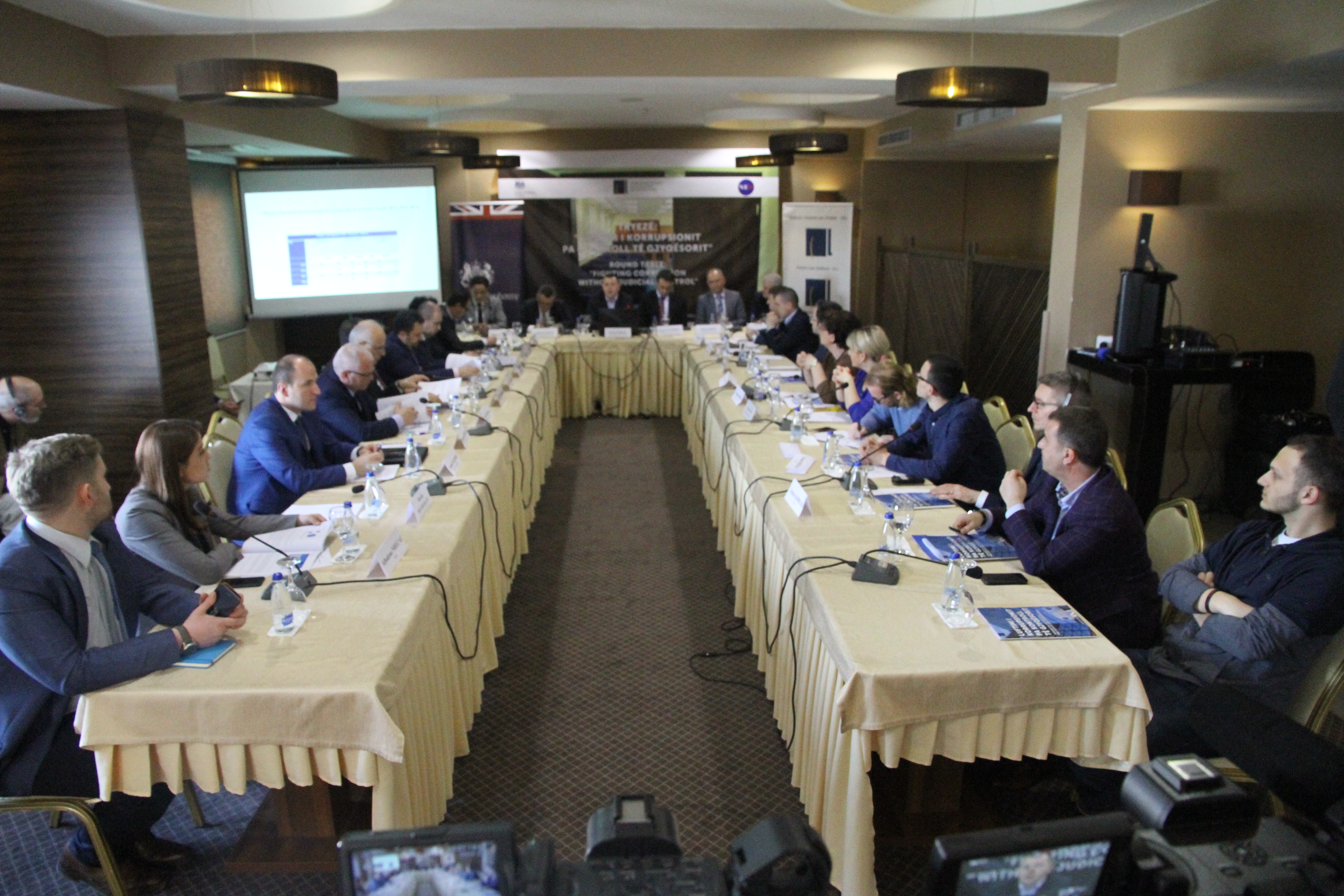Thursday 24 May, 2018
Executive summary
Kosovo Law Institute (KLI) has analyzed the process of drafting and approving of the Law on Prevention of Conflict of Interest in Exercising Public Functions, for which it has drafted a parliamentary research for the deputies of the Assembly of the Republic of Kosovo.
The adoption of this law enhances the regulation of the area of prevention and fighting the conflict of interest in the exercise of public functions by public officials, who while exercising their functions in many positions, have been large beneficiaries from the state budget.
The Law on the Prevention of Conflict of Interest in the Exercise of Public Functions has finally addressed the issue of “supermen” in public institutions, which at the same time hold some leading positions. The practice of “supermen” is explicitly prohibited in Article 13, paragraph 2 of this law, which stipulates that “a high official may not be a member of more than one governing body of a publicly owned enterprise, a public limited company as well as the bodies of other public institutions, unless otherwise expressly provided by law. ”
The KLI estimates that the example of respecting the rule of law enforcement, respectively the implementation of this law should come from the highest state institutions. In this regard, the most called institution for building this example is the State Prosecutor. For now, the head of this institution, Chief State Prosecutor Aleksander Lumezi, is one of the “supermen” in public institutions, because he exercises three leading positions in public institutions. At the same time he is Chief State Prosecutor, Chairman of the Board of Directors of the Academy of Justice and Chairman of the Bar Examination Commission. Other non-executive positions are also excluded, including the position of the Chief State Prosecutor as a member of the Kosovo Prosecutorial Council and a member of the Kosovo Academy for Public Safety Board, for which he is also compensated as a member.
According to Article 13 (2) of the Law on Prevention of Conflict of Interest in the Exercise of Public Functions, a high official is forbidden to be the leader of more than one governing body of a public institution unless otherwise expressly provided by law. The Chief State Prosecutor in either of the two other managerial positions is not legally defined as the head of the institution. Therefore, the exercise of these leadership positions consumes the criminal offense of conflict of interest, which should be prosecuted precisely by the State Prosecutor.
One of the biggest problems, and consequently the biggest benefits for public officials, are the additions to the work they do within regular working hours.
The practice of paying additions to public officials has been interrupted by the Law on Prevention of Conflict of Interest during Public Exercise. The practice of additions is explicitly prohibited in Article 13, paragraph 2 of this law, which stipulates that “a high official, in the capacity of a member of the bodies referred to in this paragraph, shall not be entitled to a remuneration other than the right to compensation for travel expenses and other related expenses.”
To elaborate this situation, KLI brings an example of additions to the Judicial Council and Prosecutorial Council. KLI systematically monitors the justice system and finds that most of the members of the Kosovo Judicial Council and Kosovo Prosecutorial Council, apart from the basic salary they receive as judges or prosecutors delegated by the court and prosecution according to legal rules and procedures, based on internal rules approved by the Kosovo Judicial Council and the Kosovo Prosecutorial Council, before the entry into force of this law, receive additional compensation for the work they do as members of two councils. Such a practice conflicts with the spirit and purpose of the law on conflict of interest.
In this regard, it is imperative that the Councils, other public institutions and the Anti-Corruption Agency take urgent measures to clarify these situations and take urgent action to prevent actions that could potentially enter the criminal sphere.
The issue of paying additions to public officials has already been clarified through law and the Anti-Corruption Agency should notify the institutions of the new provisions of this law and require public officials to enforce the law regarding the payment of additions.

